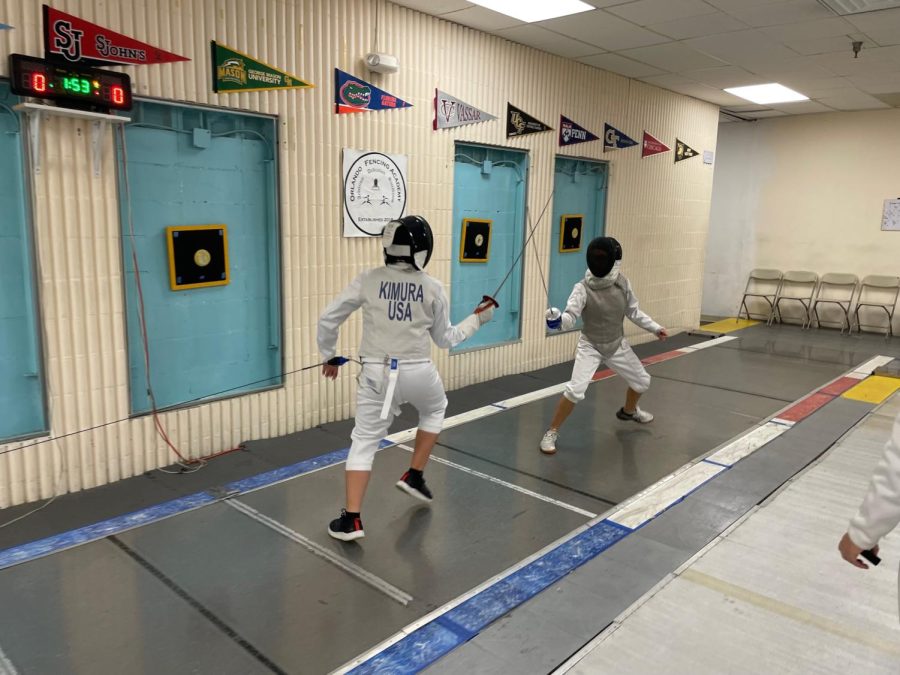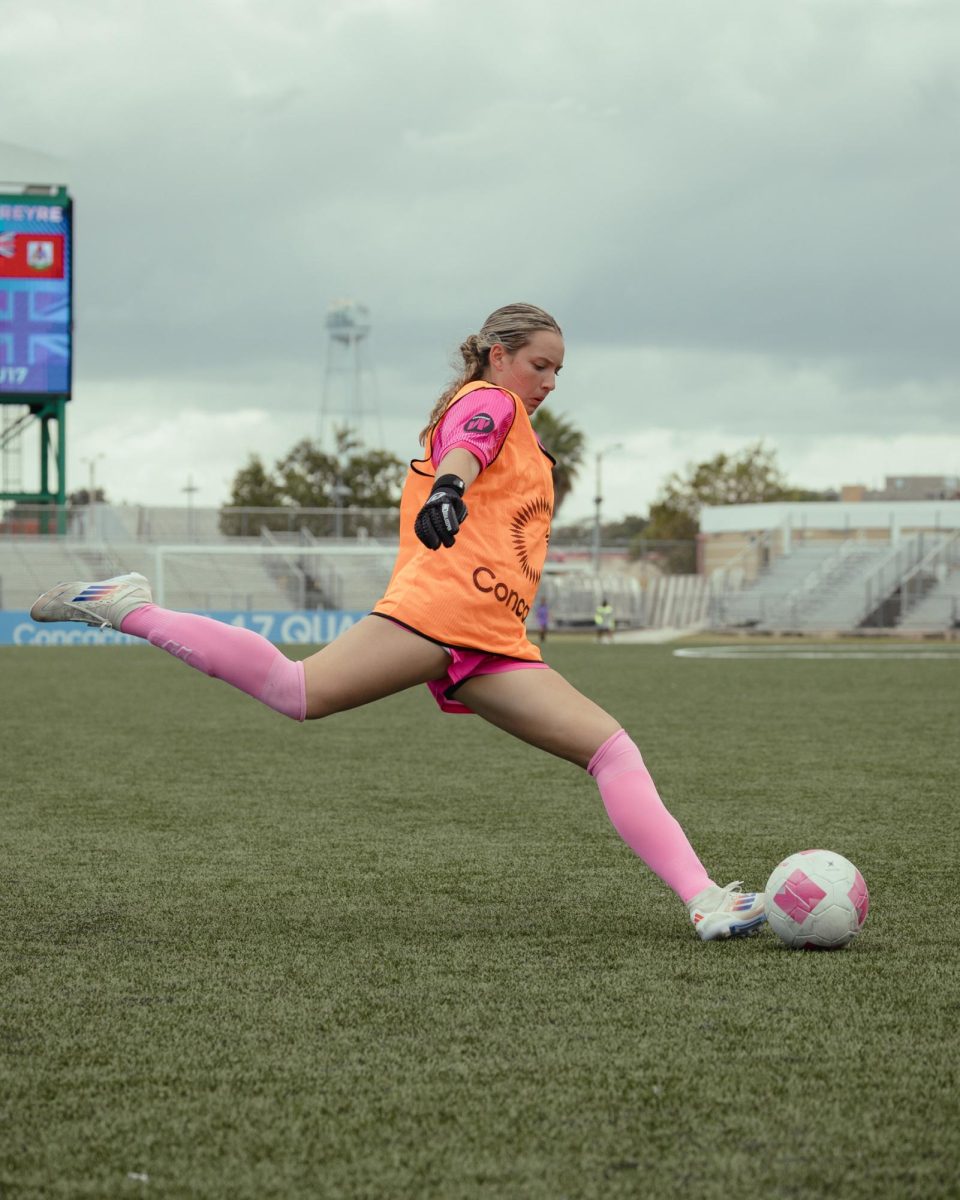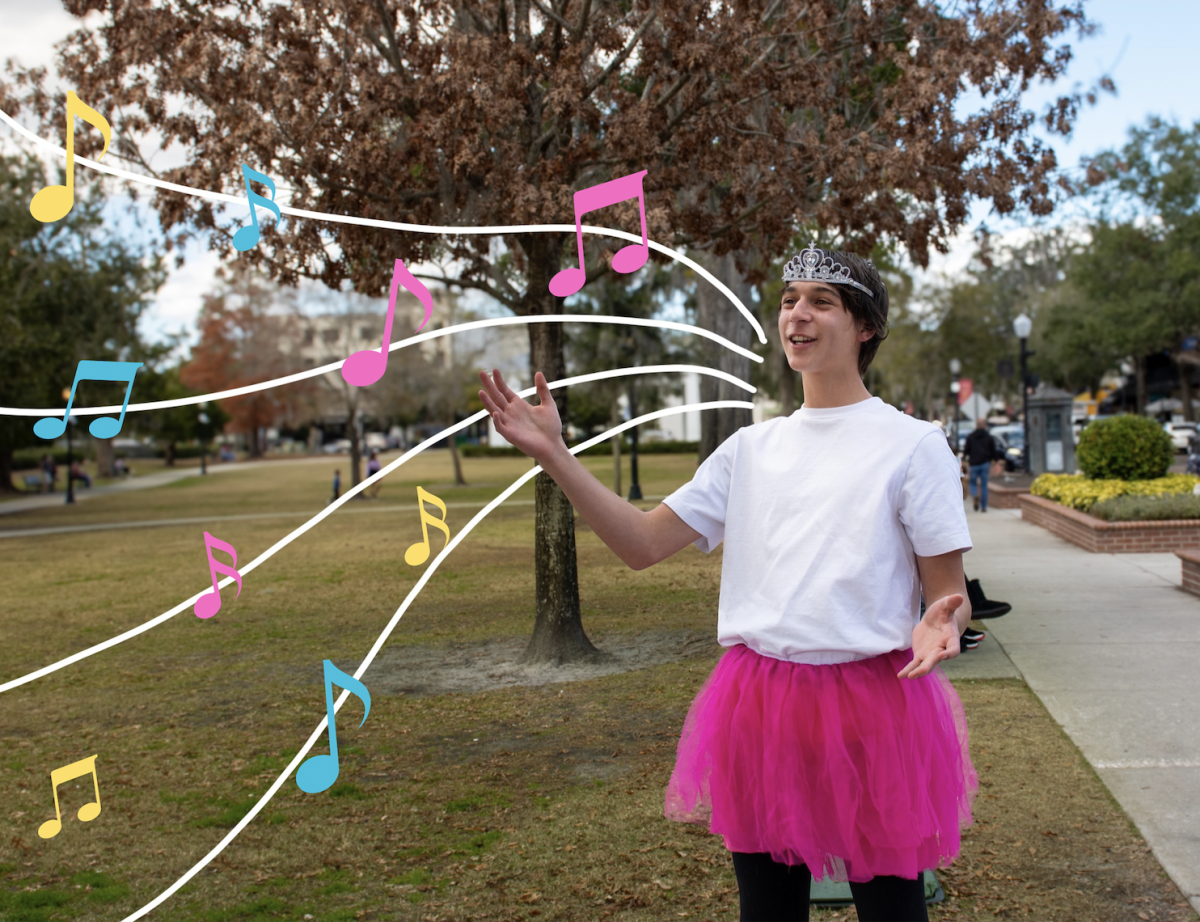Most schools have a varsity team for soccer, basketball or football, but fencing is rarely on that list. At Trinity, a group of students is hoping to change this as they push for a fencing club on campus.
Trinity once had a fencing club, but it was disbanded once former Head of Upper School Patrick Mulloy left the school. However, fencing is still popular enough to have an off-campus team. Six students at the Orlando Fencing Academy are leading the effort to bring fencing back to campus.
Training and meeting at an off-campus site can be inconvenient, as the facility can be over an hour away with traffic. One member who has to frequently make this trip is junior Kelsey Wang, the captain of the girl’s high school fencing team. Kelsey believes that setting up the fencing strips, which is what fencers compete on, is not an easy task.
“The problem with [a fencing team at Trinity] is we need a specific area to have strips setup, but strips cost a lot of money and I don’t think there’s a specific place at Trinity where we would be able to put them,” Kelsey said. “I don’t know if Trinity would even allow that, so we would have to bring our own strips and our own equipment to school and set it up somewhere, which creates a lot of complications.”
In lieu of a sufficient facility, setting up a fencing club at Trinity would be easier and would open an opportunity for more students to get involved.
“I really like the idea of a club because then I feel like it [would] bring the community closer together,” Hannah said. “Since there are already so many Trinity fencers in the club, having another club at Trinity really just brings us closer together.”
These obstacles show how fencing is a big commitment. Fencing is a year-round sport, as opposed to being seasonal, and the fencers compete in tournaments once a month, with some of these competitions being out of state. The team’s fencing coach, Sung Yim, believes in this commitment.
“If I put in the effort to coach a student, then I expect the same commitment from that student,” Yim said. “I pick and choose which tournaments we go to, and if we decide to go to one tournament, then everybody goes.”
Few people compete in fencing compared to other sports. New fencers often perceive fencing as too dangerous, too expensive and not accessible. In reality, fencing has very limited injuries resulting from the actual sword, thanks to the large amount of required protective gear. Unfortunately, this creates an issue of needing too much equipment, and Hannah believes this is another reason why fencing isn’t as popular.
“I would say it’s a sport that really involves a lot of equipment like the swords and other expected gear,” Hannah Wang said. “Additionally, fencing seems dangerous because people have the preconceived notion that all you do is stab each other, but it’s really a lot safer than other sports.”
Overall, fencing isn’t as physically demanding as other sports. According to Yim, height and weight do not matter as much; what matters the most was focus and discipline. Kelsey also noted that fencing was a lot more of a mental sport than it was physical.
“Some people get advantages because they’re taller, and some people have disadvantages like me because I’m shorter,” Kelsey said. “But even then, there’s always advantages to that. Fencing is mainly a brain sport.”
The strategy is what makes fencing a mental sport rather than more of a physical one. You have to analyze an opponent’s moves in a match and come up with your own strategy to counter it. Of course, there is still a large physical element to fencing. Fencers at the highest levels need to hit their opponent with high speed and precision in order to score points. However, Coach Yim likes to look at fencing at a different angle.
“I do not care how good you are at fencing,” Yim said. “Building personal character is more important than winning to me. I’m trying to teach life lessons to young people through fencing, and I take teaching very seriously.”












